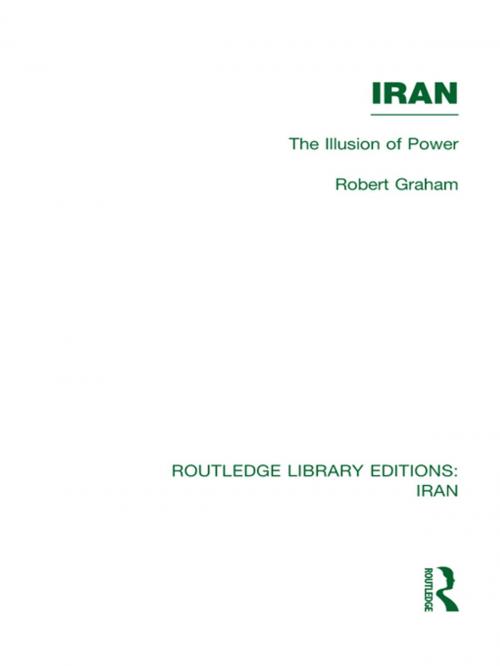| Author: | Robert Graham | ISBN: | 9781136834332 |
| Publisher: | Taylor and Francis | Publication: | April 27, 2012 |
| Imprint: | Routledge | Language: | English |
| Author: | Robert Graham |
| ISBN: | 9781136834332 |
| Publisher: | Taylor and Francis |
| Publication: | April 27, 2012 |
| Imprint: | Routledge |
| Language: | English |
The sudden increase of oil prices in 1973 meant that the foreign revenues of Iran quadrupled in just over two months. As the first OPEC member to begin disbursing this extra revenue on a significant scale, Iran offers the first complete example of the social, economic and political problems this caused. This book examines the cycle of the boom and the years that led up to it – from the rural and essentially backward nature of the country to the euphoria of 1973 when the Shah seriously talked of Iran reaching the Great Civilisation, where by the 1990s Iran would be the world’s fifth power. And then finally through to the loss of control over expenditure, the cancellation of ambitious projects and eventual disillusionment with all the attendant problems of expectations and increased social and political tension. A comprehensive analysis of the system of government in Iran is provided in Part Three of the book, demonstrating that this has created a repressed stability, incapable of promoting social and economic progress.
The sudden increase of oil prices in 1973 meant that the foreign revenues of Iran quadrupled in just over two months. As the first OPEC member to begin disbursing this extra revenue on a significant scale, Iran offers the first complete example of the social, economic and political problems this caused. This book examines the cycle of the boom and the years that led up to it – from the rural and essentially backward nature of the country to the euphoria of 1973 when the Shah seriously talked of Iran reaching the Great Civilisation, where by the 1990s Iran would be the world’s fifth power. And then finally through to the loss of control over expenditure, the cancellation of ambitious projects and eventual disillusionment with all the attendant problems of expectations and increased social and political tension. A comprehensive analysis of the system of government in Iran is provided in Part Three of the book, demonstrating that this has created a repressed stability, incapable of promoting social and economic progress.















